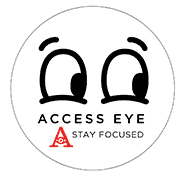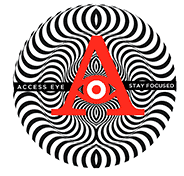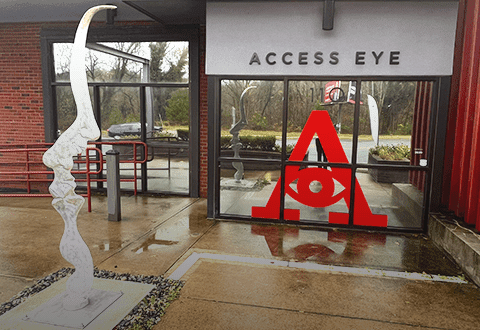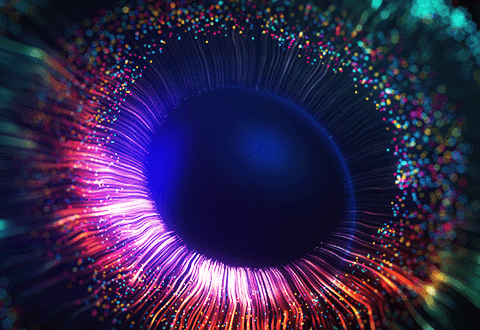Comprehensive Eye Exams Fredericksburg
Also Offering Eye Exams for Spotsylvania, Stafford & King George
The need for eyeglasses or contacts is definitely not the only reason to schedule an appointment with our optometrists. The American Academy of Optometry shares that periodic eye and vision examinations are an important part of preventive health care. Many eye and vision problems have no obvious signs or symptoms, so you might not know a problem exists. Early diagnosis and treatment of eye and vision problems can help prevent vision loss.

What Are We Looking at During an Eye Exam?
- Visual acuity with and without glasses
- Type and severity of vision problems, and accuracy of current vision prescription (if applicable)
- Aspects of visual function – e.g., eye muscle movement, depth perception, the way the pupils respond to light
- The complete health of the eyes
- Signs of potential eye problems – e.g., cataracts, glaucoma, macular degeneration, diabetic eye disease
- Signs of potential health problems based on the appearance of the structures inside the eye – e.g., diabetes, high blood pressure
IMPROVING LIVES
THROUGH BETTER VISION
What Happens during an Eye Exam?
At Access Eye our optometrists perform a thorough and comprehensive exam for our patients to ensure your overall eye health is addressed. An eye exam appointment at Access Eye begins with a conversation with your optometrist’s technician. The technician will ask you questions about your current health, medical history, family history of eye problems and any medications you take. The technician will also ask you if you are currently experiencing any symptoms or problems with your eyes or vision. This information is then relayed to your optometrist for review.
After a review and discussion of the information you’ve provided to the tech, the next step is for your optometrist to examine the inside of your eyes, looking at the structures such as the lens, retina, optic nerve and pupil. Special instruments may be used to get a closer look inside the eyes, and your pupils will likely be dilated. Your visual acuity with and without glasses will be tested, including your near, intermediate and distance vision. A series of tests may be performed to measure the type and severity of any vision problems and ensure your current prescription is correct. The movement and coordination of your eyes will also be checked to ensure they work together properly.
Based on the results of the initial tests, supplemental tests may be required to clarify areas of uncertainty, obtain further information or confirm the presence or absence of a problem.
Your optometrist will discuss their findings from the exam with you, and answer any questions you have about the tests or your vision or eye. The optometrist can discuss treatment options for visual or eye health problems and refer you to an ophthalmologist or another health care provider if needed.

Are Eye Exams Uncomfortable?
Be prepared for your eyes to feel a bit sensitive to light if they were dilated during the exam. Your vision may be temporarily blurry, too. You might want to bring a pair of sunglasses to wear after your exam to minimize light sensitivity or glare. Also, you might want to arrange for someone else to drive you home from your appointment.
How Often Should You Have Eye Exams?
Our doctors, along with leading experts, recommend that you have a comprehensive eye exam every one to two years, depending on your age, risk factors and whether you currently wear corrective lenses. Children need regular eye exams to detect vision problems that may interfere with learning. Older adults also need frequent eye exams, as the most common causes of blindness, including glaucoma and macular degeneration, are more likely to occur with age. The Access Eye team can give you a better idea of how often to schedule exams after learning more about you and the health of your eyes.
FAQ
Do I need an eye exam if my vision is fine?


Yes, eye exams are recommended for everyone, regardless of whether you think your vision is fine.
Some vision problems develop so slowly that it is difficult to detect changes. More importantly, eye diseases like glaucoma can develop without causing any noticeable symptoms; you may not realize there is a problem until the disease has advanced to the point where it may permanently affect your vision.
Having routine eye exams with a qualified eye doctor is the best way to defend yourself from glaucoma and other diseases that can lead to irreversible vision loss.
When should I schedule my child’s first eye exam?


We recommend scheduling your child’s first eye exam around five years of age.
Can an eye exam detect eye diseases?


Yes, eye exams can detect signs of many eye diseases, including glaucoma, age-related macular degeneration, cataracts and corneal and retinal diseases.
Eye exams can also uncover problems affecting your overall health. By looking at the tiny blood vessels in your eyes, our eye doctors can detect signs of diabetes, stroke, heart disease and other serious health conditions.
Who performs eye exams: ophthalmologists or optometrists?


At Access Eye, our optometrists are trained to perform comprehensive routine eye exams. Ophthalmologists are medical doctors and surgeons. Their primary focus is the management and treatment of disease, and surgical eye procedures that include cataract surgery and laser vision correction.
How does an eye chart work?


The Snellen eye chart is used to check visual acuity, which is one component of good vision. This is the sharpness of your vision and your ability to identify objects from a particular distance. The eye chart usually contains 11 rows of letters. In the first line, the letters are very large, and with each subsequent row, the letters get smaller.
During the visual acuity check, you will stand 20 feet away from the chart and read it with one eye covered. Each line is assigned two numbers: the top number, 20, refers to the distance in feet between you and the chart. The bottom number refers to the distance at which a person with normal eyesight can read the same line of letters. The last line you can read clearly is your visual acuity for that eye.
What does dilation do?


During a comprehensive eye exam, your pupils will be dilated with special drops. This will not hurt. Dilation enlarges your pupils to allow the eye doctor to evaluate the inside of your eye. Special instruments and lights are used to examine the internal structures of your eye, such as your retina and optic nerve, looking for irregularities like swelling or leaking.
The effects of dilation last several hours and can make your eyes slightly sensitive to light. It is a good idea to have someone drive you home and to bring sunglasses to wear on the ride home.
Why do patients trust the team at Access Eye?


The ophthalmologists and optometrists at Access Eye have over 100 years of combined experience delivering exceptional eye care. We are considered experts in evaluating your eyes and detecting abnormalities affecting your vision and ocular health. We want to be the best at what we do, and are always looking for ways to improve the eye exam experience for our patients.
When you trust the team at Access Eye, you can feel confident that we care deeply about your vision, ocular health and general well-being.
What is the difference between ODs and MD?


An Ophthalmologist (M.D.) is a licensed medical doctor and surgeon. Ophthalmologists perform eye surgery (e.g., cataract removal, LASIK), treat eye diseases and disorders both clinically and surgically, perform laser treatments, medication management and consultation/integration into other branches of medicine.
An optometrist (O.D) is a licensed Doctor of Optometry. Optometrists primary focus is routine vision care and clinical disease management. They work hand in hand with our Ophthalmologists to ensure comprehensive eyecare. Optometrists perform routine eye exams, prescribe, and fit eyeglasses and contact lenses, and help maintain your general eye health.
King George Office
7961 Kings Highway
King George, VA 22485
Phone: (540) 371-2020
Office Hours
Ophthalmology in King George, VA Hours
Mondays – 8:00am to 5:00pm
Tuesdays – 8:00am to 5:00pm
Wednesdays – 8:00am to 5:00pm
Thursdays – 8:00am to 5:00pm
Fridays – 8:00am to 5:00pm
Closed for lunch from 1:00pm to 2:00pm
Falmouth Office
110 Cambridge Street
Fredericksburg, VA 22405
(540) 371-2020
Office Hours
Ophthalmology in Falmouth, VA Hours
Monday – 8:00am to 5:00pm
Tuesday – 8:00am to 5:00pm
Wednesday – 8:00am to 5:00pm
Thursday – 8:00am to 5:00pm
Friday – 8:00am to 5:00pm
Route 3 Office
4516 Plank Road
Fredericksburg, VA 22407
(540) 371-2020
Office Hours
Ophthalmology in Fredericksburg, VA Hours
Monday – 8:00am to 5:00pm
Tuesday – 8:00am to 5:00pm
Wednesday – 8:00am to 5:00pm
Thursday – 8:00am to 5:00pm
Friday – 8:00am to 5:00pm
Parkway Office
4701 Spotsylvania Parkway
Suite 110
Fredericksburg, VA 22408
Office Hours
Ophthalmology in Spotsylvania, VA Hours
Mondays – 8:00am to 5:00pm
Tuesdays – 8:00am to 5:00pm
Wednesdays – 8:00am to 5:00pm
Thursdays – 8:00am to 5:00pm
Fridays – Temporarily Closed
Closed for lunch 1:00pm -2:00pm
Dedicated Laser Center
4516 Plank Rd
Fredericksburg, VA 22407
(540) 371-2020
Office Hours
Dedicated Laser Center Hours
Refer to hours listed for the Plank Road Location
Aquia Office
2761 Richmond Highway
Suite 205
Stafford VA, 22554
Office Hours
Ophthalmology in Stafford, VA Hours
Mondays – 8:00am to 5:00pm
Tuesdays – 8:00am to 5:00pm
Wednesdays – 8:00am to 5:00pm
Thursdays – 8:00am to 5:00pm
Fridays – 8:00am to 5:00pm
Closed for lunch 1:00pm -2:00pm



















